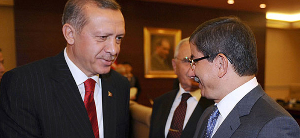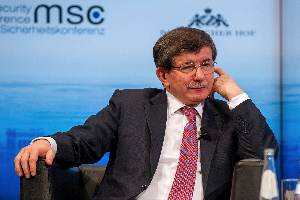Without Constitutional Amendment, Erdoğan is Unlikely to Remain an All-Powerful President
By Kemal Kaya (vol. 7 no. 18 of the Turkey Analyst)
The Turkish political system is parliamentarian. President Recep Tayyip Erdoğan may have succeeded in neutering of the role of the constitutionally designated executive, the government, but that is only temporary. Sooner or later, the dynamics of the political system are going to assert themselves. The prime minister, even Ahmet Davutoğlu, if he retains the post after the 2015 general election, is set to eventually reclaim power from the president.

What the Columnists Say
Pro-government pundits have declared the advent of a “New Turkey” after the appointment of Ahmet Davutoğlu as the successor of Recep Tayyip Erdoğan as the leader of the ruling AKP. One commentator described the appointment as one of the most critical thresholds in the realization of the New Turkey project, which is described and celebrated as a comprehensive break with the past century of Turkish history. Dissident commentators warn that Davutoğlu’s vision of a world in which religiously based civilizations clash, and where Turkey aspires to lead the Islamic world, threatens to bring with it cataclysmic effects for Turkey. A more moderate commentator compared the “New Turkey” of Erdoğan to the sheikdom of Dubai.

Looking Strong but Fragile: A New AKP and a “New Turkey”
By Halil Karaveli (vol. 7, no. 15 of the Turkey Analyst)
The appointment of Ahmet Davutoglu to head the ruling Justice and Development Party (AKP) represents a doubling down on the party’s Sunni Islamic ideology. But ideology alone will not be sufficient to keep the AKP in power. The self-confident ideological rhetoric that proclaims the advent of a “New Turkey” masks what is in fact a fragile economic reality. Such rhetoric is not indefinitely going to be a substitute for the kind of material progress absent which the prospects for the “New Turkey” and its power-holders look bleak.

Vision or Illusion? Ahmet Davutoglu's State of Harmony in Regional Relations
By M. K. Kaya and Halil M. Karaveli (vol. 2, no. 11 of the Turkey Analyst)
During the nearly seven years of rule by the Justice and development party, AKP, Turkey has deepened its relations in particular with the Muslim Middle East, what has been termed its “strategic depth”. The main theorist of Turkey’s evolving foreign policy priorities, Ahmet Davutoglu, was recently appointed foreign minister. Davutoglu has already had a pivotal role as Prime Minister Recep Tayyip Erdogan’s chief foreign policy advisor. As foreign minister, he will be directly responsible for the further implementation and for the ultimate testing of his ideas. They rest on an assumption of the possibility of achieving a state of harmony in Turkey’s regional relations, an assumption that is likely unrealistic.





